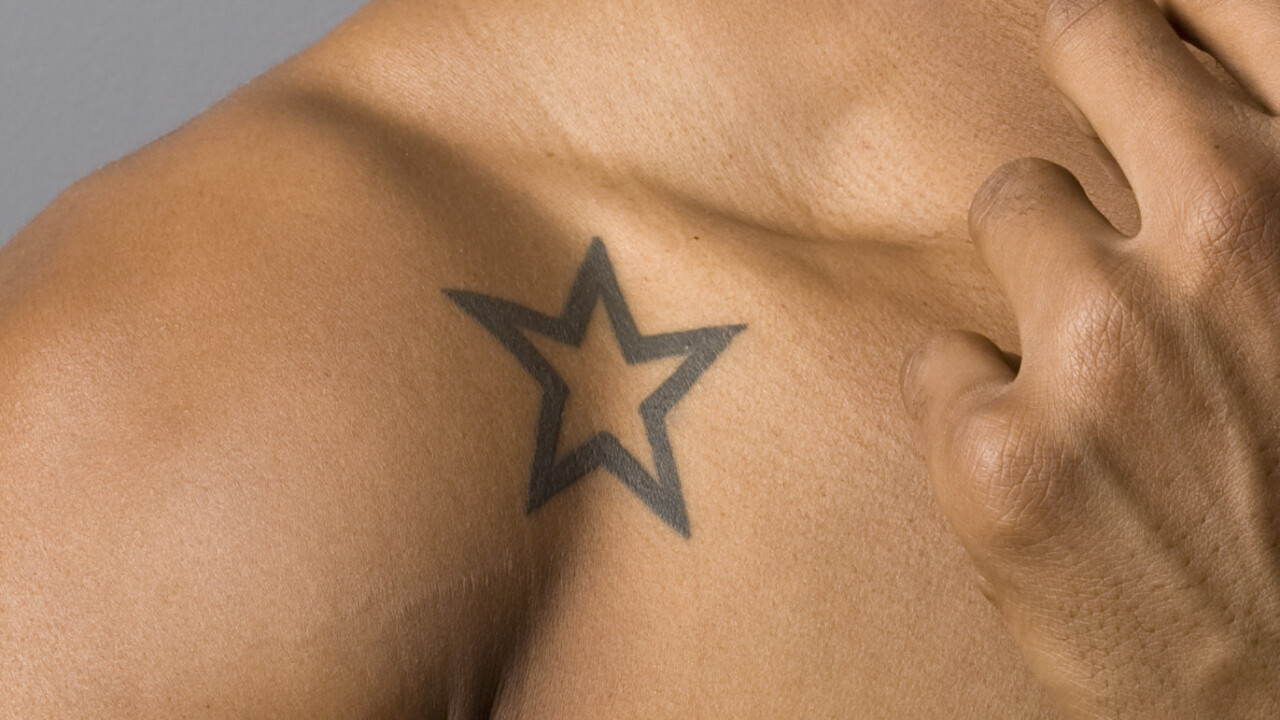
Adii Pienaar is the author of Brandiing, a practical guide to content strategy and branding for business. Having had some success as a startup entrepreneur, Adii is now launching PublicBeta, a learning platform for entrepreneurs, by entrepreneurs.
The most important thing that you can work on today is figuring out who you (really) are, what you’re passionate about and how this should influence (and build) your personal brand and reputation.
Our global economies and societies has given us greater access to a bucketload of awesome opportunities. Our generation is in the perfect position to take up these opportunities and be whoever we want to be. The playing field has been levelled, the winner doesn’t take all (there’s loads more opportunities if you fail at the first attempt) and we’re better equipped to rise out from the crowd.
Imagine you could be flexible and you could literally jump effortlessly and without friction from one opportunity to the next. Whether that’s quitting one job to pursue another, finding a better opportunity with another company. Or deciding to take the plunge to work on a startup of your own. Or what about taking a gap year to just travel the world.
Well, if you build and use your personal brand in the right way, you could have all of that. And then some.
Personal branding is the modern resume
I’m a firm believer that your personal brand will outlive any professional brand that you build yourself or participate in building. When your startup fails, the brand dies. When you quit your job, your brand dies.
But you and your personal brand remains.
So if you’re clever then you would constantly build and nurture your personal brand, because it is the one thing that will allow you to make the jump from one pursuit to the next.
Your personal brand is the reason you’ll get invited to an interview when you’ve applied for a job. It’s a way to have an audience or mailing list even before you decide to work on your new startup. Or it’s the way to join another startup as a co-founder.
Nobody pays that much attention to traditional resumes anymore. Today you’re judged by what you’ve done (i.e. what can I find out about you online) and who you know. Your personal brand should encapsulate both of these things.
Stepping Stones
At the beginning of this year I found myself in an interesting situation: I was CEO of WooThemes (which I had co-founded way back in 2007) and everything was going incredibly well. In fact, it was going so well that a big part of my job had become redundant due to the team we had put in place. So I decided to take the plunge and pursue a new challenge.
In the space of a couple of weeks, I considered a few of my own startup ideas, had offers to join other startups and even had investors lined up for whatever I decided to do next. I eventually decided to work on my own self-funded startup instead. But the experience of having all of these options hit a chord with me.
What I found during these interactions and discussions is that many people knew of me even though they didn’t know me as a person. This however didn’t prevent them from pushing opportunities and proposals my way.
See, the thing is that whilst my previous business consumed the majority of my life in the past 5 years, I never lost sight of the ultimate goal and the ultimate “business model”: myself. I knew from WooThemes’ very first day that my personal brand and reputation would eventually outlive that of anything that I can pursue professionally. So I made sure to build the best personal brand possible.
Yes, that drive lead to me renaming changing my surname to “Rockstar” and branding myself as “Adii Rockstar” in years gone by. Maybe not one of my proudest moments, but a decision that ultimately crafted the individual, reputation and brand that is today known as Adii Pienaar online.
PublicBeta is only my next conquest; most definitely not my last. My brand will be the bridge that enables so many future opportunities, as long as I keep building and nurturing it.
Take (branding) action
1. Figure out the why
Simon Sinek said: “The goal is to do business with people that believe what you believe.” He furthermore advocates starting by figuring out the “why” and how that relates to how you do things, along with what you actually do.
As you embark on building a personal brand and reputation that will become your stepping stone to anything, it’s important to really start building from a strong foundation: yourself. Everything about you: your beliefs, your passion, your opinions, your way of thinking. Those are the ingredients to build an incredible personal brand. Consider these things to be your true north.
There’s no silver bullet when it comes to branding and you’d struggle to come up with a finite or perfect list of branding do’s and don’ts. As such, Facebook’s “done is better than perfect” mostly applies to branding, since there is just no perfect recipe in this regard.
But there is one thing you can be perfect at: being yourself. And that’s exactly what you should be basing your personal branding on.
2. Connect the dots forward
In Steve Jobs’ famous Stanford commencement speech in June 2005, he coined this about intuition that should drive you forward:
“You can’t connect the dots looking forward; you can only connect them looking backwards. So you have to trust that the dots will somehow connect in your future. You have to trust in something – your gut, destiny, life, karma, whatever. Because believing that the dots will connect down the road will give you the confidence to follow your heart even when it leads you off the well-worn path; and that will make all the difference.”
I don’t disagree with Jobs here, but for your personal branding it’s important to try connect those dots forward, instead of purely relying on the reflection that comes after the fact. Hindsight will also be an exact science, but that doesn’t mean it’s the only option available to you.
When you are building your personal brand, you need to anticipate where the dots might be in future. No one will be able to tell you exactly where those dots will be and you’ll need to rely on your intuition (as Jobs suggests) to help guide you to those. There’s a few concrete ways of helping you connect those dots forward:
- Make as many friends as possible;
- Remember it’s mostly not about what you know, but instead about who you now;
- Try avoid burning any bridges, since you never know when bad karma strikes back;
- Acknowledge that every aspect of your personal and professional life (and your pursuits around that) requires interaction with other people;
- Focus on self-improvement and learn as much about as many things as possible; and
- Experiment, explore and grab as many opportunities that make sense.
All of those things relate to establishing “dots” or beacons for future use. You don’t have to figure out how all of those will (eventually) line up now; but making sure those beacons will be there in future, makes the act of drawing that connection line so much easier.
3. Anything you do is everything you do
I was in a workshop about culture the other day and the presenter shared something that stuck with me. She said that “anything you do, is everything you do” and she explained that this is a tactic that she uses before hiring anyone within her business. The principle was that you could learn a lot about a candidate’s personality (and how they will work within your business) by focusing on the small, seemingly insignificant cues.
One of the tests she used quite often was to place a candy wrapper on the floor of her office prior to inviting the candidate in for an interview. The test was whether the candidate would actually pick up the wrapper and place it in the bin. She theorized that this probably indicates the candidates’ attention to detail, level of accuracy / neatness or just a bit of apathy.
My point here is that branding is all about what you do. Even your most insignificant actions (according to your perception) has an influence on how others perceive you.
There’s also a case to be made for building up bad debt in this regard, where a few tiny, insignificant actions over an extended period of time reaches tipping point and actually has a significant effect on your personal branding.
Whilst the written word is powerful, it is superseded (and potentially undone) by your actions. Actions will always speak louder than words. So know who you are, what kind of brand you’d like to build and how your actions influences others’ perception of this.
4. Email-first branding
Ask any digital citizen about their biggest challenge and they’re likely to tell you that they simply haven’t figured out a way to deal with e-mail overload. The reality is that most of us sends hundreds of emails every day and it’s one of the most prevalent types of interactions we have with other people.
In that though is also an opportunity to be building your personal brand. Which is exactly why I would advocate that everyone should become a better writer.
Writing is such an undervalued skill, considering how many (written) words we use on a daily basis. The written word is still one of the best ways to communicate anything and especially the things about your brand. Even something seemingly insignificant (like an email) can influence your branding success. So spend time becoming a better writer and refining your words.
The best leaders throughout history were great communicators and they built their personal brands based on how well they could pick the words to make other people believe what they believe.
5. Branding is about progression
Your brand is a living organism just like you are as a human and it needs to mirror the same kind of progression, evolution and maturation that you experience in your own life. Whilst legacy is important (as it gives context to your brand), continuous improvement and change should be part of how you shape your brand over time.
Real (brand) artists ship. You’re not perfect today and as such your personal brand has imperfections. To be successful in personal branding though, you don’t sweep those imperfections underneath a rug. Instead you embrace them, work at them and use them to help shape the truest representation of who you are.
Your brand should make mistakes and you should have the opportunity to learn from them. That’s just life and your audience / followers will find it much easier to associate with that authentic representation of who you really are (compared to a perfectly-crafted, robotic brand that never makes mistakes).
Taking that next step to absolutely anything starts today. You should start building a personal brand before you feel ready. There’s no real excuse (and I’ve heard a few of them in my consultations with others about their personal brand) not to work on your personal brand and reputation today.
Ten years ago, you could’ve probably gotten away by ignoring this. You could get a great corporate gig, climb the ladder and jump between corporate opportunities as and when an opportunity was pushed to you. Unfortunately our societies and economies have changed to the extent, that this kite won’t fly anymore.
Start today and brand shamelessly.
Image credit: Thinkstock
Get the TNW newsletter
Get the most important tech news in your inbox each week.




